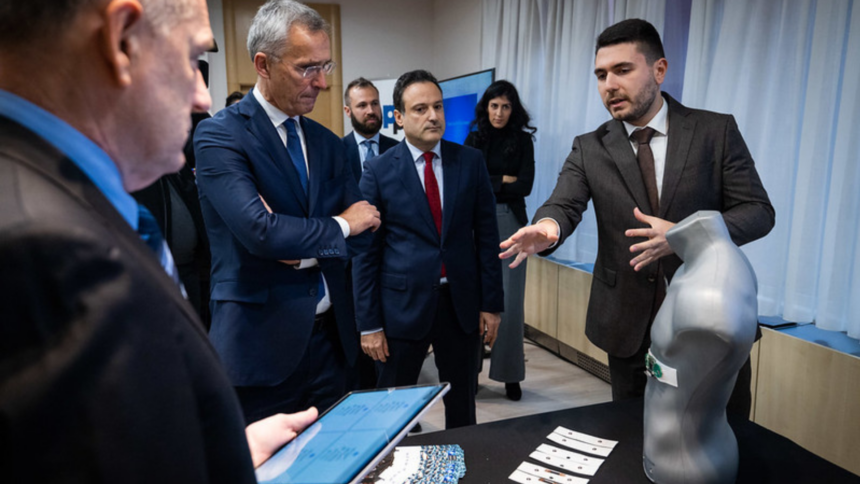Pristina, Kosovo – In 2023, scientists from the Western Balkans have made significant strides in the field of security and technology through their participation in the NATO Science for Peace and Security (SPS) Programme. Serbia leads the region with involvement in 14 projects, while North Macedonia is engaged in 6 projects. Bosnia and Herzegovina and Montenegro are contributing to 3 and 2 projects, respectively.
About the SPS programme
Established in 1958, the SPS Programme provides funding for scientific projects that enhance security, not only for NATO member states but also for partner countries. This includes non-member states like Bosnia and Herzegovina and Serbia, which have been part of the NATO Partnership for Peace initiative since 2006. Scientists from these countries must collaborate with counterparts from NATO allies to submit applications. Current projects are approved for 24 to 36 months.
Innovative projects in the Western Balkans
Recent projects under the SPS in the Western Balkans have focused on areas such as protective equipment, explosives detection, and energy storage. A notable project completed in 2023 was the “Optical Nose Grid for Large Indoor Area Explosives’ Vapours Monitoring” managed by the Vinča Institute of Nuclear Sciences, in collaboration with partners from the USA and Great Britain.
The Vinča Institute is also part of the DEXTER initiative, which focuses on the detection of explosives and firearms to counter-terrorism. This project involves 11 institutions from 4 NATO countries and 4 partner countries, integrating systems and tests in real scenarios in big cities. Another significant project, involving the University of Niš from 2022 to 2025, addresses the detection of CBRN threats (chemical, biological, radiological, nuclear).
In the field of materials science, the SUSPENCE project involves creating super-strong ceramics for protection against harsh environments and terrorist attacks, with participation from the Institute of Technical Sciences of the Serbian Academy of Sciences and Arts.
Energy projects include the “Carbon-based Batteries and Supercapacitors” initiative, launched in 2021, aimed at developing new generation energy storage systems without lithium, based on biomass. This project sees collaboration between scientists from the University of Belgrade and the University of Montenegro, continuing until February 2024.
Bosnia and Herzegovina’s participation
Bosnia and Herzegovina is active in three SPS projects. The “Quantum Cybersecurity in 5G Networks” (QUANTUM5) project, involving the University of Sarajevo, demonstrates secure communication methods using quantum mechanics. Another ongoing project, led by the Ministry of Security of Bosnia and Herzegovina, enhances the Next-Generation Incident Command System (NICS), a software developed at MIT for improved coordination during natural disasters.
Collaborative efforts across the Western Balkans
Joint efforts between Serbia and North Macedonia have resulted in five ongoing or newly launched projects in 2023. One such project involves professors from the University of Niš and the Ss. Cyril and Methodius University in Skopje developing advanced imaging techniques for explosives detection using miniature radar devices on unmanned aerial vehicles.
Another significant initiative is the “Innovative AI-framework to enable the detection, classification, and tracking of killer-drones,” a new project started by scientists from the International University of Sarajevo and the Mother Teresa University in Skopje.
Since 2021, the “Smart Patch for Life Support Systems” (SP4LIFE) project, involving the University of Belgrade and the Ss. Cyril and Methodius University, has focused on creating a wearable device for real-time monitoring of vital parameters, useful in terrorist attacks or CBRN threats. The same universities are also working on the MULProTex project, which aims to produce multi-protective military clothing.
In May 2023, a 36-month project named CONSENS was launched by the Faculty of Technical Sciences of the University of Novi Sad and the Ss. Cyril and Methodius University. This project aims to develop advanced sensor technology for rapid screening of pesticides in food, soil, or water. Another project, “Wearable smart patches for multimodal wound healing” (DRESWOUTRE), includes scientists from Italy and Ukraine and focuses on creating a multimodal wound dressing.
Scientists from the Vinča Institute of Nuclear Sciences and the University of Montenegro are collaborating on the NO DEPENDENCE project from June 2023. This initiative aims to develop hydrogen compressors to facilitate the construction of hydrogen pumping stations in the region.
Through these collaborative efforts, the Western Balkans are making substantial contributions to the global scientific community, particularly in security, technology, and sustainable energy, under the auspices of the NATO Science for Peace and Security Programme.






